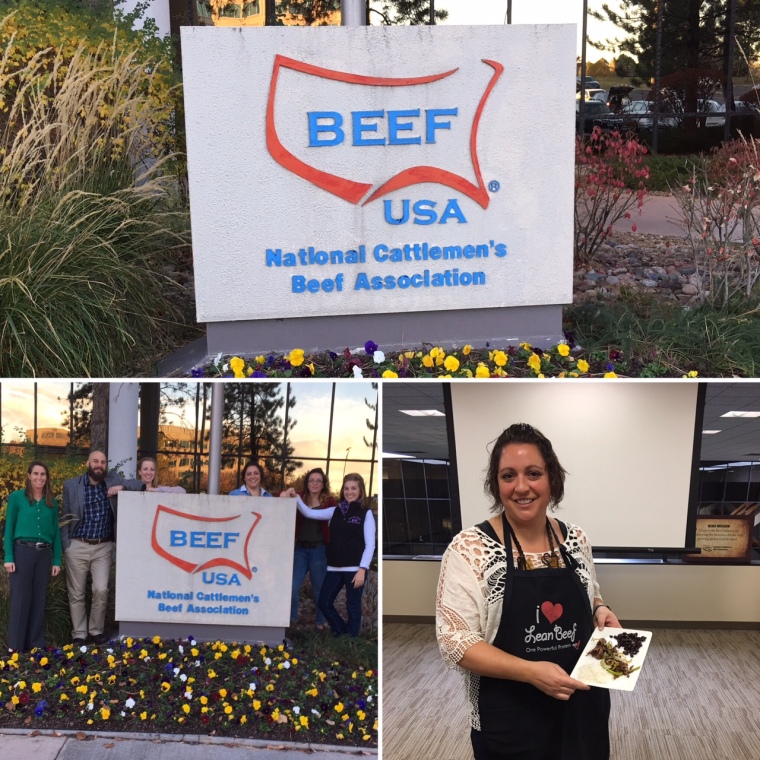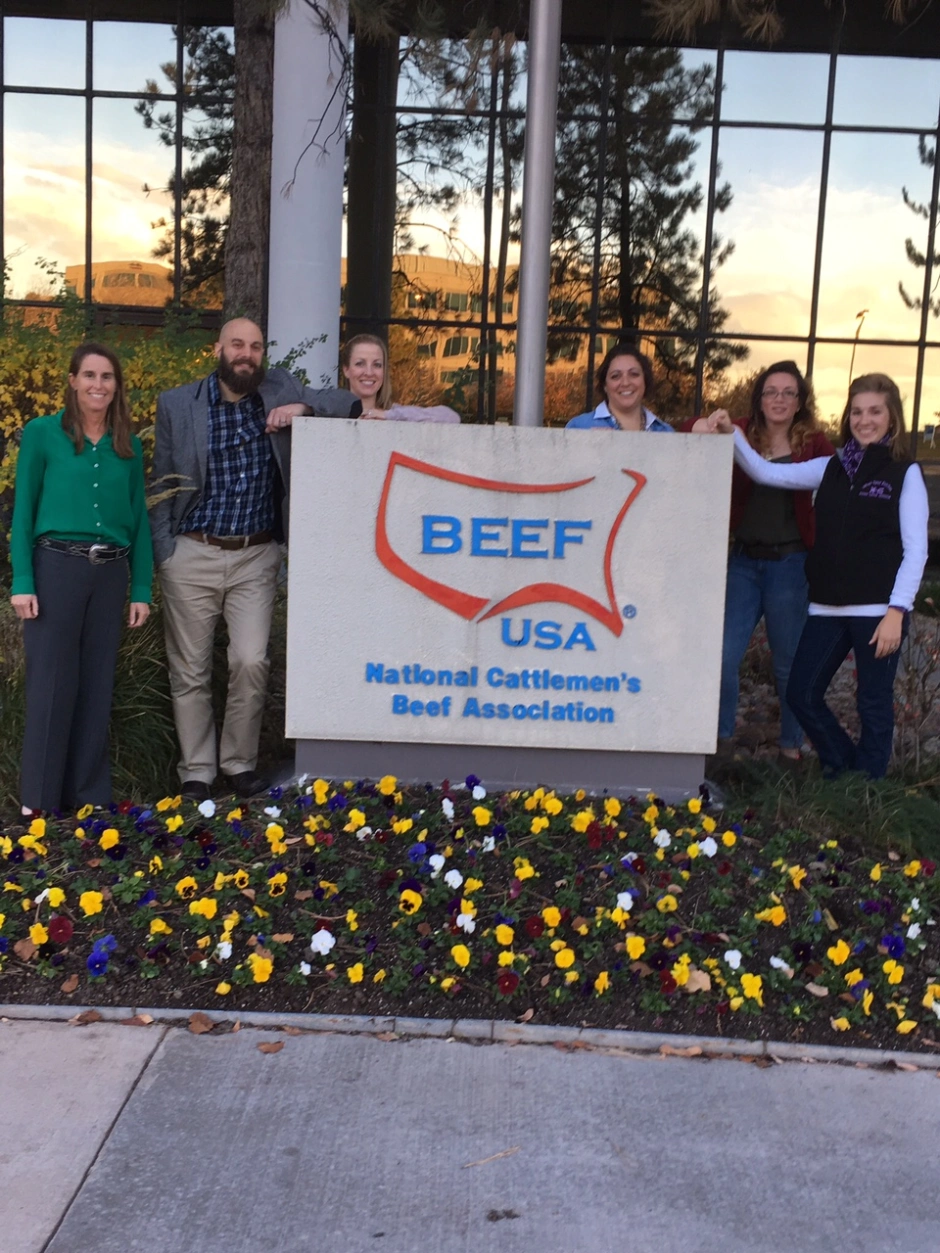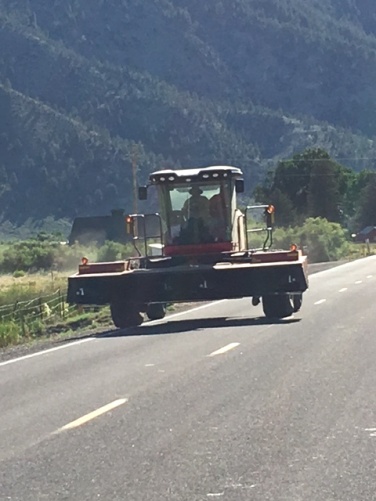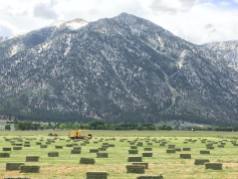In October, I had the opportunity to spend a couple of days at the National Cattlemen’s Beef Association (NCBA) headquarters in Denver, Colorado, for an in-depth, beef advocacy training called Top of the Class. Originally, I was actually supposed to attend last year, but with moving to Nevada they let me postpone, and I had to postpone again this past spring as I was already committed to another event. I am sure the people in those classes were great, but I am very glad I got to meet four other persons with whom I could share this great experience.
One of the requirements for Top of the Class is to complete the Master of Beef Advocacy (MBA) Training. This training does a great job going through all of the major points of the beef lifecycle, as well as sharing the facts and research. One of the greatest things, once you are a MBA grad you can download the app, which has all of the resources and materials in a handy little location.
Top of the Class helped us practice our media interview skills (always a challenge when the hard questions start coming at you), practice live cooking show skills where we prepared Cuban Crispy Shredded Beef, a planned-over. Additionally, we met with many of the great folks at the NCBA and went over our online goals, our web presence, honed in on our niches, and so much more. This was very helpful for me, as blogging has taken a back seat this year as I have been working to get my career going in Nevada. But fear not, I now have a plan, and am ready to get 2017 back on track.

One of my Top of the Class comrades did an excellent job of introducing our classmates (yours truly included) to his readers at Top of the Class Beef Advocacy Training. I thought it would be fun to introduce Johnny Prime (Johnny Prime Steaks) to all of you…

Johnny Prime, a meatatarian if there ever was one. Johnny is based in New York City, and has what can be argued is one of the greatest jobs ever… He is a steakhouse reviewer! As he takes one for the team in this terrible job (add sarcastic font here), he provides reviews on where to find a juicy, tender, and delicious piece of meat in NYC, as well as around New Jersey and the Long Island area. Additionally, Johnny provides commentary on fine eateries, cooking tips, recipes, cooking videos, general meat information, and more. And, not only does he take meat and food photography very seriously, he is funny and provides a ton of foodporn photos for your viewing pleasure. Johnny is a tremendous advocate for the beef and meat industry, and has really dedicated the time to learn about and understand the intricate details of cattle ranching and farming. I very much appreciate Johnny’s quest to learn about the facts and truth when it comes to agriculture instead of believing the buffet of lies and fearmongering out there. Thanks for being a friend of meat and agriculture Johnny Prime!
As you can see, beef lovers and advocates are on each coast and everywhere in between. I encourage you to check out and follow these fine folks, they share some great information. Finally, I would be remiss if I failed to mention that Johnny Prime did a nice feature piece on one of the beef industry’s finest, Meet your meat: Anne Burkholder (Feedyard Foodie). Anne was not only one of the instructors for our training, but is a mentor to many.
Thanks to the Beef Checkoff (cattle ranchers and farmers) for making this possible.
Dr. Lindsay can also be found on:
– Twitter/Instagram (agwithdrlindsay)
– Facebook
– Pinterest




















